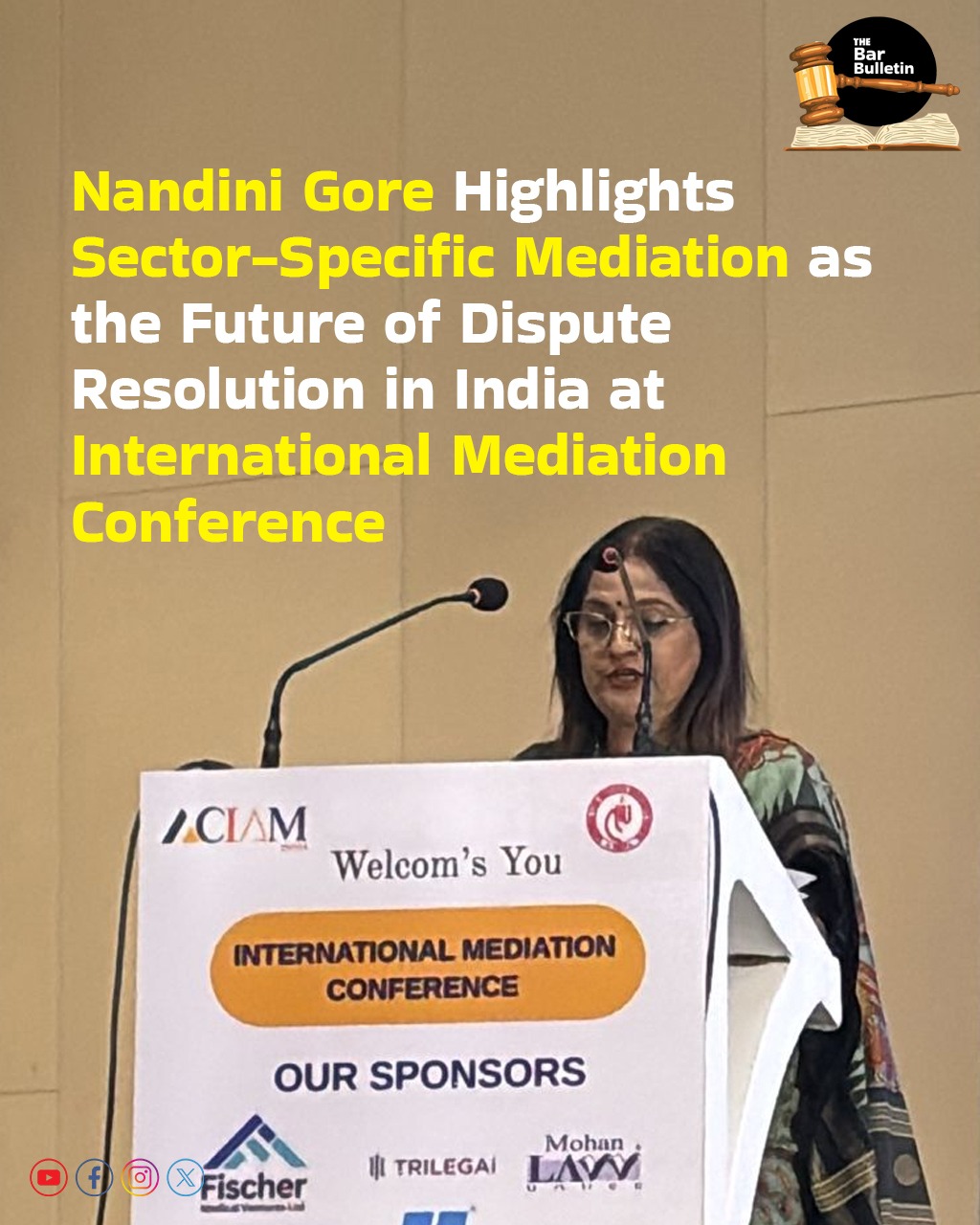Speaking at the International Mediation Conference, senior advocate Ms. Nandini Gore emphasized that sector-specific mediation and hyper-specialization will define the next phase of India’s dispute resolution landscape.
She noted that the Mediation Act, 2023 has given statutory legitimacy to mediation, but the growing complexity of commercial contracts, regulated industries, and technology-driven disputes demands specialized mediators with sectoral knowledge.
“Today’s disputes require more than facilitation. Mediators must combine neutrality with technical understanding to make the process credible and efficient,” Ms. Gore said.
She identified key opportunities in infrastructure, finance, intellectual property, family disputes, and the gig economy, where specialized mediators can save years of litigation. At the same time, she cautioned that challenges such as maintaining neutrality, ensuring affordability, capacity building, and regulatory gaps must be addressed.
Calling for institutional reforms, Ms. Gore urged the Mediation Council of India and sectoral regulators like SEBI, IBBI, and TRAI to create accredited rosters of specialized mediators. She also recommended embedding mediation clinics in law schools, using AI-driven platforms to match disputants with mediators, and learning from international models such as Singapore and the UK.
“Sector-specific mediation must evolve from being merely an alternative to litigation into the preferred mechanism of dispute resolution. By embracing specialization, India can position itself as a global hub for mediation,” she concluded.



